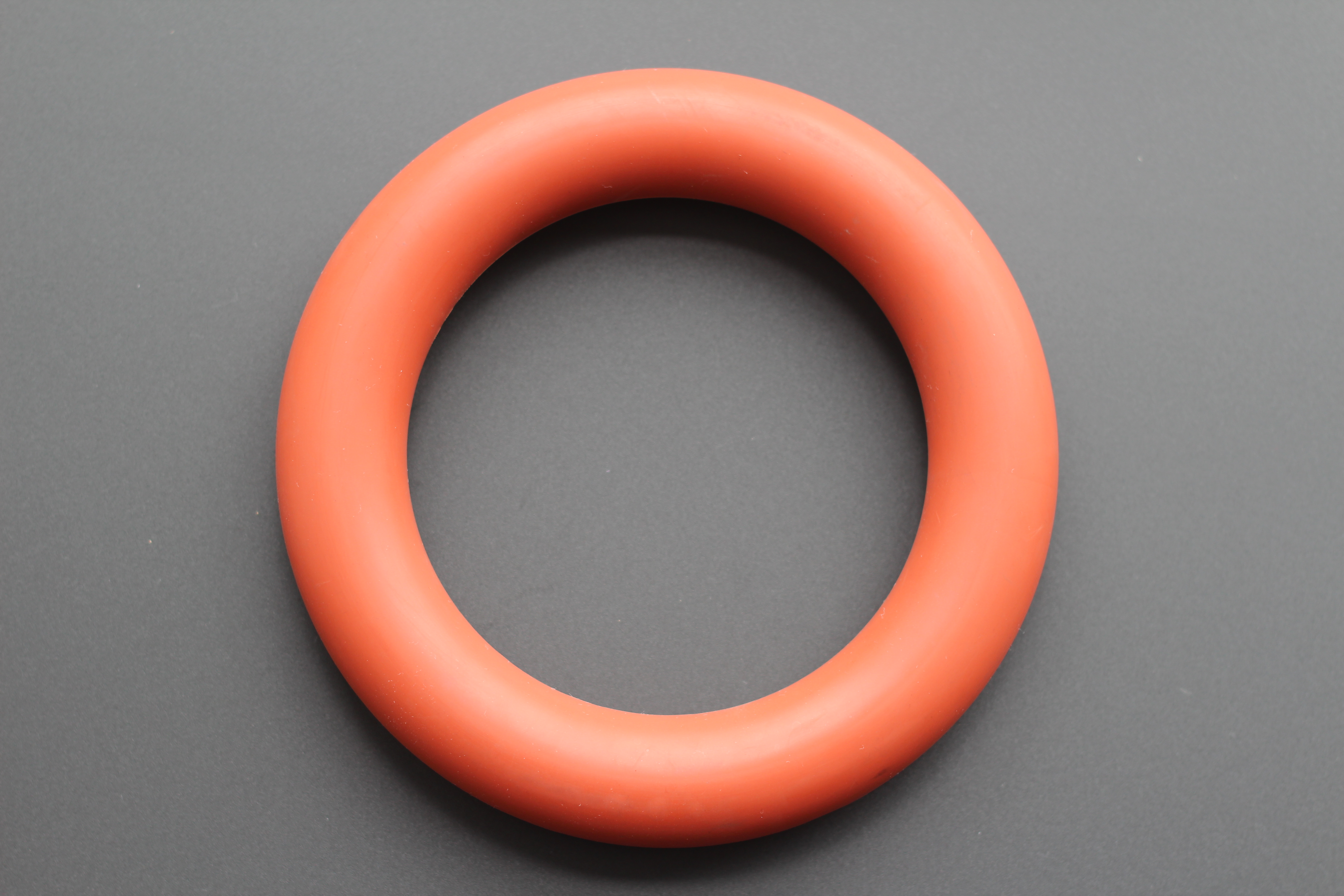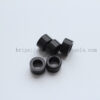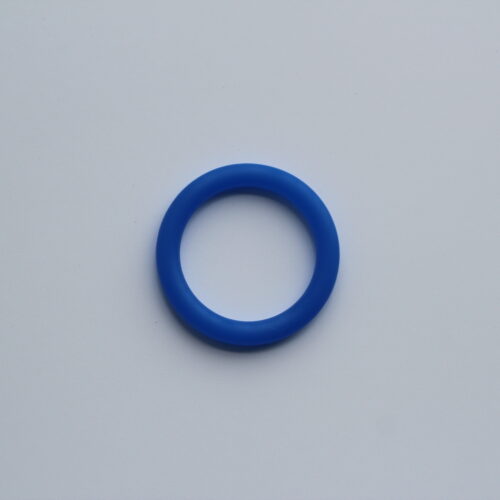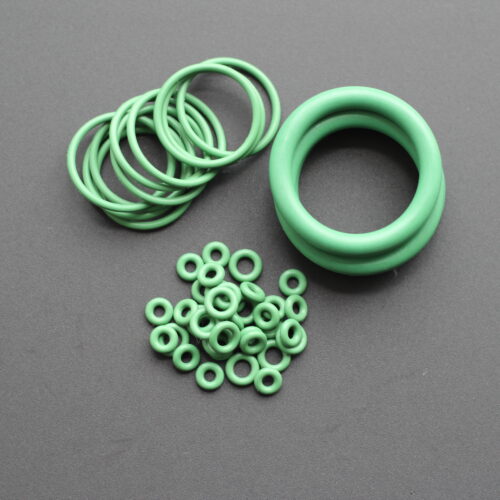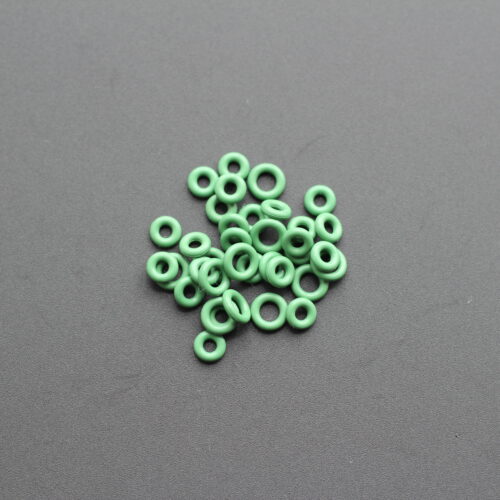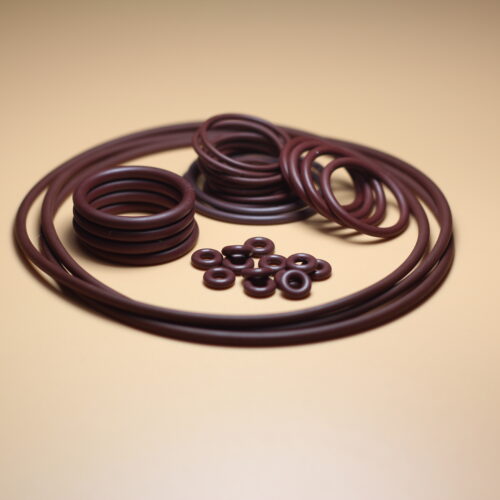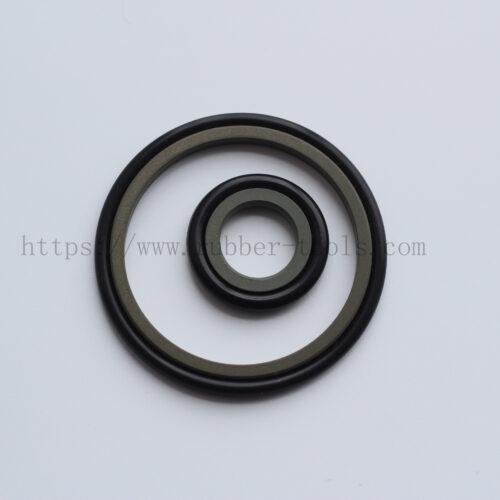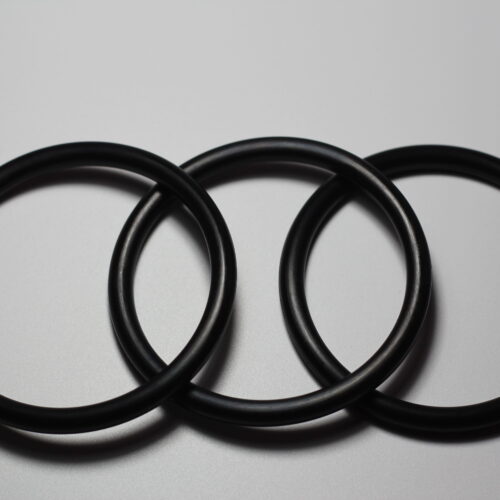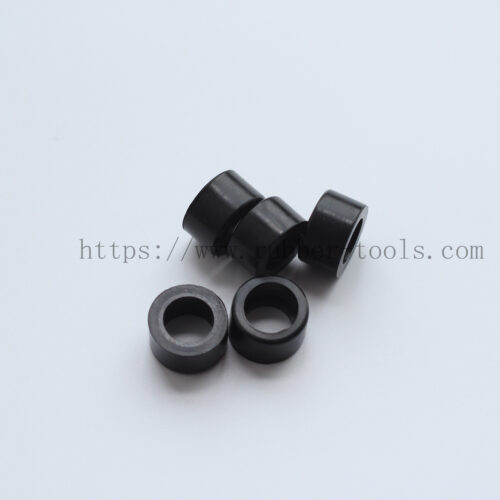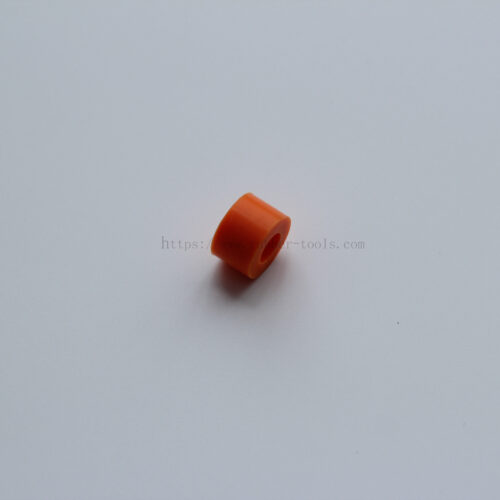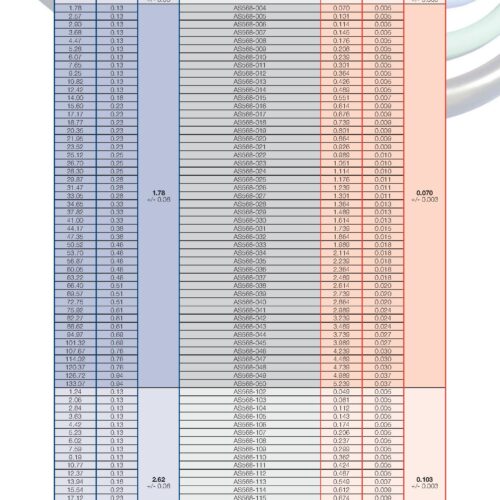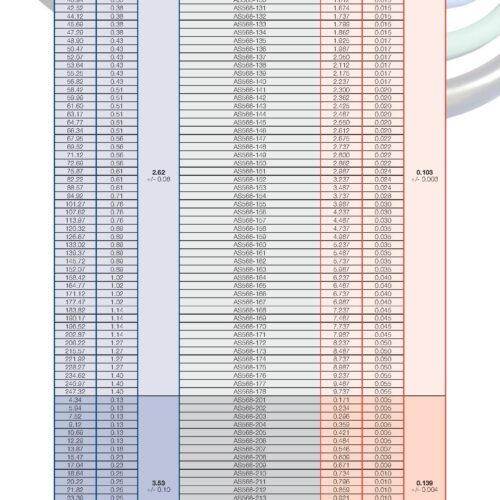FKM Materials for O-rings: An Overview
Introduction: Fluoroelastomers, commonly known as FKM, are a class of synthetic rubber designed for very high-temperature operation. FKM materials are renowned for their resistance to heat, chemical reactions, and oil and gas, making them an ideal choice for O-ring applications in demanding environments.
Key Features of FKM O-rings:
- High-Temperature Resistance: FKM O-rings can withstand temperatures up to 200°C (392°F) and are suitable for prolonged exposure to high temperatures without degradation.
- Chemical Resistance: FKM materials are resistant to a wide range of chemicals and solvents, including hydrocarbons, oils, acids, and bases.
- Fuel Resistance: FKM O-rings are commonly used in the automotive and aerospace industries due to their excellent resistance to petroleum-based fuels and lubricants.
- Low Gas Permeability: FKM O-rings have a low rate of gas permeation, making them ideal for vacuum systems and applications where gas tightness is crucial.
- Weather and Ozone Resistance: FKM materials resist the degrading effects of UV light, ozone, and atmospheric conditions, ensuring longevity in outdoor applications.
Applications of FKM O-rings:
- Automotive: Used in fuel systems, transmission systems, and other high-temperature applications.
- Aerospace: Ideal for fuel systems, hydraulic systems, and engine components.
- Oil and Gas: Suitable for downhole equipment, valves, and drilling components.
- Chemical Processing: Used in seals for reactors, mixers, and transfer systems.
- Pharmaceutical and Food Processing: While standard FKM might not be suitable for food contact, specialized grades of FKM are used in food and pharmaceutical processing equipment.
Conclusion: FKM O-rings offer a combination of high-temperature, chemical, and fuel resistance, making them a preferred choice for industries that require durable and reliable sealing solutions. Whether you’re in the automotive, aerospace, or oil and gas sector, FKM O-rings deliver performance you can trust.
About FFKM Materials
In today’s world, the development of materials science is becoming an important driving force for human progress. In recent years, high-performance high-temperature materials have been widely used in aerospace, nuclear energy, new energy and other fields. As a high-end engineering plastic with excellent properties, FFKM material has a wide application prospect in aerospace, pharmaceutical, petrochemical and other fields.
FFKM material is a polytetrafluoroethylene isoprene copolymer, which is a kind of fluoroelastomer. It has excellent chemical resistance, high temperature and mechanical properties, can withstand from low to high temperature range of chemical solvents and corrosion media, and has excellent pressure resistance and sealing performance. Therefore, FFKM material is excellent in high temperature, high pressure, strong corrosion and other harsh environment.
Advantages of FFKM Materials:
- Good chemical resistance: FFKM materials have excellent chemical stability, can withstand a variety of acids, bases, solvents, oxidants and reducing agents, therefore, it is widely used in chemical pharmacy, food processing and other industries.
- Excellent High Temperature Performance: FFKM can be used in a wide range of temperature, and can be used in high temperature, high pressure and strong corrosion environment.
- Good mechanical properties: FFKM material not only has excellent chemical resistance and high temperature performance, but also shows excellent mechanical properties. Its hardness is very high, tensile strength, elongation at break, wear resistance and other properties are much higher than other materials.
- Excellent sealing performance: FFKM material has excellent sealing performance, can effectively prevent liquid or gas leakage. Therefore, in the aerospace, petrochemical and other fields are widely used in the manufacture of seals.
In a word, FFKM is becoming one of the representatives of high-end engineering plastics because of its high performance index and Good Adaptability, and has been widely used in various fields.
FKM vs. FFKM: Understanding the Differences
| Attribute | FKM | FFKM |
|---|---|---|
| Basic Definition | Fluoroelastomer | Perfluoroelastomer |
| Chemical Structure | Contains fluorine and hydrogen atoms | Almost entirely made of carbon and fluorine atoms |
| Temperature Range | -20°C to +200°C (up to +230°C in special grades) | -40°C to +330°C (up to +350°C for some grades) |
| Chemical Resistance | Resistant to many chemicals but not all | Exhibits almost universal chemical resistance |
| Cost | Generally less expensive | Typically more expensive |
| Common Applications | Automotive, aerospace, oil & gas | Semiconductor, chemical processing |
| Wear and Tear | Offers good resistance | Exhibits superior resistance |
1. Basic Definition:
- FKM: FKM stands for Fluoroelastomer, a class of synthetic rubber designed for high-temperature and chemical-resistant applications. It’s commonly known by the brand name Viton, which is a registered trademark of Chemours.
- FFKM: FFKM stands for Perfluoroelastomer. It is a type of rubber that contains even more fluorine than FKM, making it even more resistant to extreme temperatures and aggressive chemicals.
2. Chemical Structure:
- FKM: Contains fluorine atoms in its polymer chain but also has other atoms like hydrogen.
- FFKM: Almost entirely consists of carbon and fluorine atoms, making it the most chemically resistant elastomer available.
3. Temperature Resistance:
- FKM: Can typically withstand temperatures ranging from -20°C to +200°C, with some special grades tolerating up to +230°C.
- FFKM: Offers an even broader temperature range, from -40°C to +330°C, with some grades withstanding up to +350°C.
4. Chemical Resistance:
- FKM: Resistant to a wide range of chemicals, including mineral acids, fuels, and many solvents. However, it may not be suitable for some specific chemicals or extreme chemical environments.
- FFKM: Due to its fully fluorinated structure, FFKM exhibits almost universal chemical resistance. It can withstand exposure to the most aggressive chemicals, even in extreme conditions.
5. Cost:
- FKM: Generally less expensive than FFKM due to its more common usage and less complex manufacturing process.
- FFKM: Typically more expensive than FKM, reflecting its superior performance characteristics and more complex production process.
6. Applications:
- FKM: Commonly used in the automotive, aerospace, and oil & gas industries for seals, O-rings, and gaskets.
- FFKM: Preferred in more demanding environments such as semiconductor manufacturing, chemical processing industries, and where extreme temperature and chemical resistance are required.
7. Wear and Tear:
- FKM: Offers good wear and tear resistance but might degrade faster than FFKM in extremely aggressive environments.
- FFKM: Exhibits superior wear and tear resistance, especially in environments with aggressive chemicals or extreme temperatures.
Conclusion: While both FKM and FFKM are high-performance elastomers, the choice between them depends on the specific requirements of the application. FFKM’s almost universal chemical resistance and superior temperature tolerance make it ideal for the most demanding environments, while FKM offers a balance of performance and cost-effectiveness for many industrial applications.
FAQs about FKM and FFKM:
1. What are FKM and FFKM?
- Answer: FKM stands for Fluoroelastomer, a synthetic rubber known for its high-temperature and chemical-resistant properties. FFKM, or Perfluoroelastomer, is a type of rubber that contains even more fluorine than FKM, offering superior resistance to extreme temperatures and aggressive chemicals.
2. In which industries are FKM and FFKM commonly used?
- Answer: FKM is widely used in the automotive, aerospace, and oil & gas industries. FFKM, due to its superior chemical resistance, finds applications in more demanding environments such as semiconductor manufacturing, chemical processing, and aerospace.
3. How do FKM and FFKM differ in terms of chemical resistance?
- Answer: While FKM offers resistance to a wide range of chemicals, FFKM, with its fully fluorinated structure, exhibits almost universal chemical resistance, making it suitable for the most aggressive chemicals and extreme conditions.
4. Are FKM and FFKM suitable for high-temperature applications?
- Answer: Yes. FKM can typically withstand temperatures ranging from -20°C to +200°C, with some special grades tolerating up to +230°C. FFKM offers an even broader temperature range, from -40°C to +330°C, with some grades withstanding up to +350°C.
5. How do the costs of FKM and FFKM compare?
- Answer: Generally, FKM is less expensive than FFKM. The higher cost of FFKM reflects its superior performance characteristics and the more complex production process.
6. Can both FKM and FFKM be customized for specific applications?
- Answer: Yes, both FKM and FFKM can be tailored to meet specific application requirements, including hardness, color, and resistance properties.
7. How do FKM and FFKM O-rings compare in terms of wear and tear?
- Answer: While FKM offers good wear and tear resistance, FFKM exhibits superior resistance, especially in environments with aggressive chemicals or extreme temperatures.
8. Are there any environmental or health concerns associated with FKM and FFKM?
- Answer: Both FKM and FFKM are stable materials that do not readily degrade into harmful substances. However, as with all materials, it’s essential to ensure they are used in applications for which they are designed and to follow safety guidelines during handling and disposal.
FAQs for FKM O-rings and FFKM O-rings Buyer:
1. What distinguishes your FKM O-rings from other suppliers?
- Answer: Our FKM O-rings are manufactured under stringent quality control measures, ensuring they meet the highest industry standards. We source premium-grade FKM material, ensuring optimal performance in terms of temperature and chemical resistance.
2. How do FFKM O-rings differ from FKM O-rings in terms of performance?
- Answer: FFKM O-rings offer superior chemical resistance compared to FKM O-rings. While FKM is suitable for many industrial applications, FFKM is designed for extreme environments, resisting a broader range of chemicals and higher temperatures.
3. Can you customize O-rings based on our specific requirements?
- Answer: Absolutely. We pride ourselves on our flexibility and customer-centric approach. Whether you have specific size, material, or performance requirements, our team is equipped to provide tailored solutions to meet your exact needs.
4. What is the typical lead time for bulk orders?
- Answer: Our standard lead time for bulk orders is 3-4 weeks. However, this can vary based on the order’s complexity and current production capacity. We always strive to meet our clients’ timelines and provide expedited services when necessary.
5. How do you ensure the consistent quality of your O-rings across large orders?
- Answer: Quality assurance is paramount to us. We employ advanced testing and inspection methods at every production stage. Regular audits and continuous training of our staff further ensure that every O-ring meets our stringent quality criteria.
6. Are there any certifications or standards that your FKM and FFKM O-rings comply with?
- Answer: Yes, our O-rings are produced in compliance with international standards, and we hold several certifications attesting to our commitment to quality. Detailed certification documents can be provided upon request.
7. What support do you offer post-purchase?
- Answer: We believe in building long-term relationships with our clients. Our post-purchase support includes technical assistance, guidance on installation and usage, and prompt response to any concerns or queries. Our team is always ready to assist.

